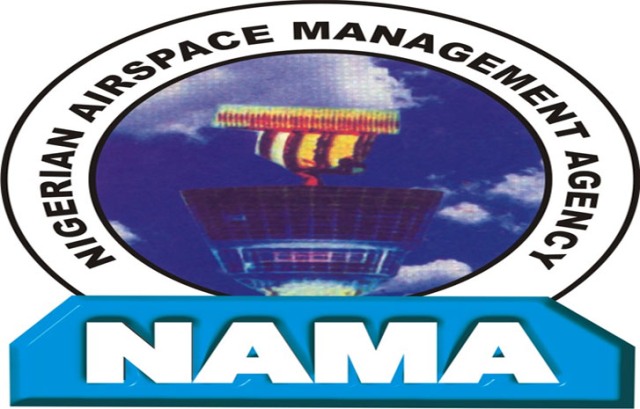The Nigerian Airspace Management Agency (NAMA) and the Nigerian College of Aviation Technology (NCAT) there is the need to adopt sustainable practices to ensure the long-term viability of the aviation industry in the face of the challenges of climate change.
They stated this at a one-day ‘Stakeholder engagement on carbon emission management’ summit held in Lagos.
The event was attended by stakeholders in the aviation industry including airline operators, fuel suppliers, and airport terminal managers, among others.
The managing director of NAMA, Mr Umar Farouk who was represented by his technical adviser, Mr Jibrin Haske said the agency recognise the importance of balancing the growth of air transportation with the need to protect the environment.
“We remain fully committed to ensuring that our air navigation services not only guarantee safety and efficiency but also contribute significantly to the reduction of aviation emissions.
“To achieve this, NAMA has taken deliberate steps aligned with national and global standards and initiatives, particularly the International Civil Aviation Organization’s (ICAO) Carbon Offsetting and Reduction Scheme for International Aviation (CORSIA) as well as the NCAA’s Clean-2-Breath Nigeria Campaign.
He recalled that since 2015, “NAMA has progressively implemented Performance-Based Navigation (PBN) RNAV Approaches in all Nigerian airports.”
He explained that the system leverages satellite-based navigation, enables more precise and efficient flight paths, and reduces fuel consumption and carbon emissions.
“In 2020, we successfully implemented RNAV 10 routes across our airspace to further optimize flight efficiency. Additionally, in December 2021, we introduced Free Route Airspace (FRA), allowing aircraft to select the most direct routes between defined entry and exit points. This innovation significantly minimizes fuel burn and emissions,” he added.
The managing director also stated that the agency was committed to leveraging emerging technologies to further enhance efficiency and sustainability.
“Innovations such as artificial intelligence, digital tower systems and advanced surveillance technologies will play a key role in reducing environmental impact while maintaining the highest standards of safety and efficiency,” he said.
In his contribution, the acting rector of NCAT, Mr Joseph Imalighwe said it is imperative to adopt sustainable practices to ensure the long-term viability of the aviation industry and its minimal impact on the environment.
Imalighwe, who was represented by the dean, aircraft maintenance engineering school, said it is imperative adopt sustainable practices to ensure the long-term viability of the aviation industry and its minimal impact on the environment.
“The Nigerian College of Aviation Technology, Zaria, stands at the forefront of aviation training, and we understand the critical role we play in shaping the future of aviation professionals who will lead these essential efforts.
“We are fully committed to embracing and promoting environmentally responsible practices, particularly in the reduction of carbon emissions at airports,” he declared. He said the college supports the adoption of green technologies, enhancing fuel efficiency, and fostering innovations that can reduce our environmental footprint.
He commended the efforts of stakeholders in the aviation industry “for their dedication to making our airports more sustainable” and encouraged further collaboration towards achieving carbon neutrality in aviation.
“Together, we can contribute to a cleaner, greener world while ensuring safe, efficient air travel for generations to come,” Imalighwe said.


























































